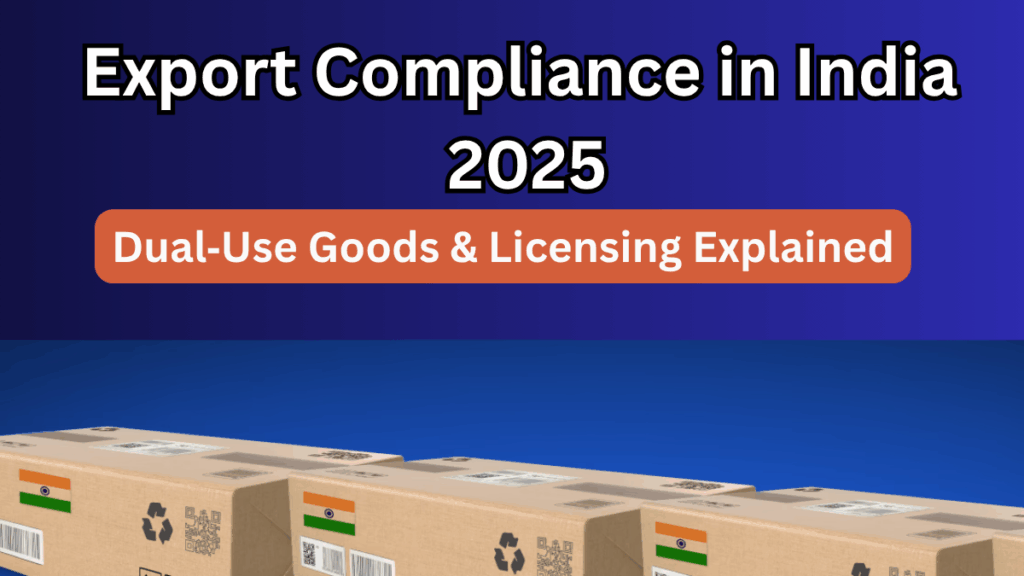Global trade is becoming increasingly regulated, and for Indian exporters, understanding India Dual‑Use Export Controls 2025 is no longer optional – it’s essential. Whether you are a small manufacturer or a large conglomerate, complying with export laws ensures your business remains competitive, trusted, and free from penalties.
Let’s break down the key aspects of dual‑use goods, the SCOMET list & export licensing, and what businesses must do in 2025 to stay compliant.

What Are Dual‑Use Goods?
Dual‑use goods are products, technologies, or software that can be used for both civilian and military purposes. These include items that may seem harmless but could also be used in the development of weapons or defense systems.
Examples include:
-
Advanced electronics
-
Certain types of chemicals
-
Nuclear‑related components
-
Software and cybersecurity tools
India’s export laws classify these items under the SCOMET list & export licensing framework.
Understanding the SCOMET List
The Special Chemicals, Organisms, Materials, Equipment, and Technologies (SCOMET) list is India’s regulatory framework for controlling sensitive exports.
Key Highlights of the SCOMET List (2025):
-
Covers 9 broad categories, from nuclear materials to advanced technology.
-
Includes dual‑use goods that need prior government approval for export.
-
Updated periodically to align with international non‑proliferation regimes.
Export Licensing in India – How It Works
If your product falls under the SCOMET list, you need to obtain an export license.
Step‑by‑step process:
-
Check Classification: Identify whether your product is on the SCOMET list.
-
Apply for a License: Submit an application via the Directorate General of Foreign Trade (DGFT) portal.
-
Review & Approval: Authorities assess the end‑use and the buyer’s credentials.
-
License Issuance: Once cleared, you can legally export the item.
Why Export Compliance Matters in 2025
With stricter India Dual‑Use Export Controls 2025, compliance is not just a legal requirement—it’s a competitive advantage.
Benefits of being compliant:
-
Avoid penalties, shipment delays, or blacklisting.
-
Build trust with international buyers.
-
Ensure alignment with global trade and security standards.
Quick Reference Table – Dual‑Use Export Compliance
| Aspect | Details |
|---|---|
| Regulating Authority | Directorate General of Foreign Trade (DGFT) |
| Key Framework | SCOMET list & export licensing |
| Who Needs It? | Exporters of dual‑use goods & technologies |
| Why It Matters | National security, global trade compliance |
Practical Tips for Exporters
-
Regularly review updates to the SCOMET list.
-
Train your staff on export compliance procedures.
-
Maintain strong documentation for end‑users and destinations.
-
Consult trade compliance experts when in doubt.
FAQs
1. What are dual‑use goods?
Dual‑use goods are products that can serve both civilian and military purposes, such as chemicals, electronics, or advanced software.
2. What is the SCOMET list?
The SCOMET list is India’s official classification of sensitive goods, technologies, and materials that require government approval before export.
3. How do I apply for an export license in India?
You need to apply online via the DGFT portal, providing details about your product, buyer, and intended use.
4. Why are India Dual‑Use Export Controls 2025 important?
They help safeguard national security, maintain international trade credibility, and prevent the misuse of sensitive goods.
Click here to learn more